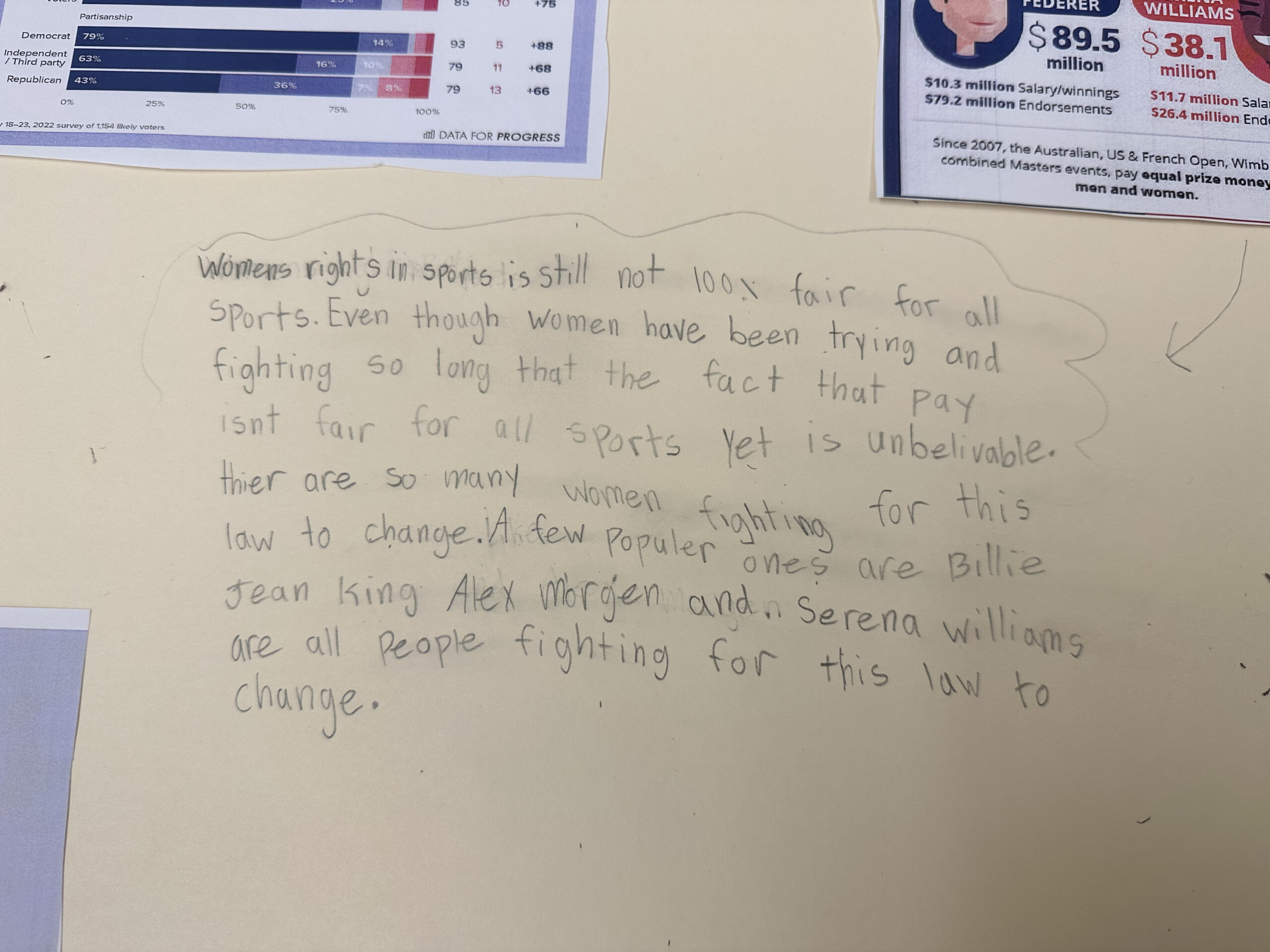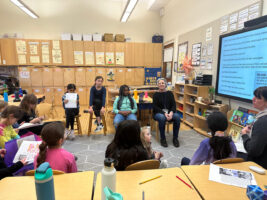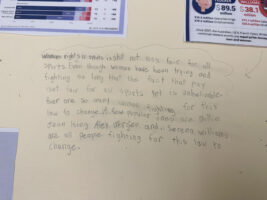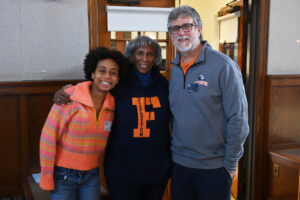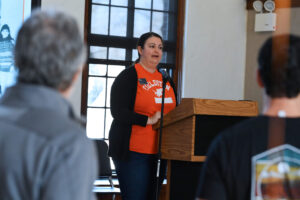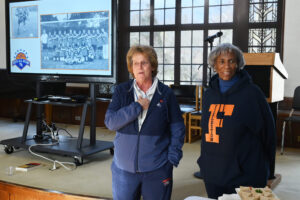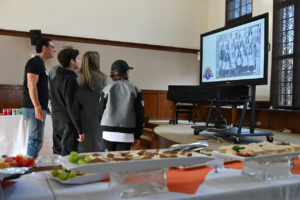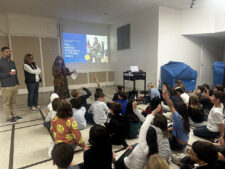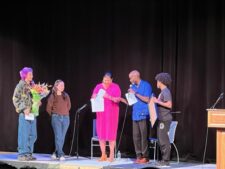March is Women’s History Month, an internationally recognized month to highlight and celebrate the contributions of women to society throughout history and in the present day. We visited with students and teachers throughout the School to learn more about how they were honoring the occasion.
At Ethical Culture Fieldston School, teachers celebrated Women’s History Month by recognizing existing disparities and understanding that an intersectional lens is necessary to honor all women meaningfully. Within each lesson surrounding gender equity, our teachers demonstrate a future-focused approach; in other words, at ECFS, Women’s History Month is not simply a month-long celebration that frames the fight for women’s rights as a historical moment but a chance to engage in conversations that will inspire changemakers.
The 3rd Grade students at Ethical Culture have formed Social Justice Action Groups as part of their ongoing social justice and social studies work this year. One group, in particular, focuses on women’s rights and has been learning about the proposed Equal Rights Amendment and wage gaps in women’s sports among many other important aspects of the women’s rights movement.

On one visit to the Women’s Rights Social Justice Action Group, which is facilitated by 3rd Grade Teachers Cara Regan and Colleen Conboy, students devised a plan to circulate important information about women’s rights to the rest of the Ethical Culture community. Each initiative was thoughtful and practical — from writing a letter to President Joe Biden about the passage of the proposed Equal Rights Amendment and creating informational posters about relevant women’s rights issues to creating petitions to combat negative stereotypes such as the “play like a girl” ad campaign.
One student, Avani M. ’32, created a poster that included researched facts about the wage gap in women’s sports. After gluing several statistics to her poster, Avani wrote, “What do you notice?” hoping to encourage anyone who viewed the poster to engage with the material. Another student, Harper B. ’32, excitedly drafted a paragraph on her poster. When asked what her main goal was in creating the poster, she confidently stated, “To show everyone at school that girl athletes shouldn’t be treated any differently than boy athletes! Girls deserve all of the same things.”
Meanwhile, in Fieldston Upper History Teacher Taylor Torres’s 10th Grade United States history class, students investigated how Asian Americans have struggled, but more importantly, resisted, and ultimately contributed to a better world. Torres connected these accounts of resistance to that of women in the United States and beyond to secure equal rights and shared important messages from feminist and artist Caitlin Blunnie’s Instagram account @liberaljane.
Torres concluded this lesson with one powerful and succinct statement: “Remember, the resistance of women means a better world for everyone.”
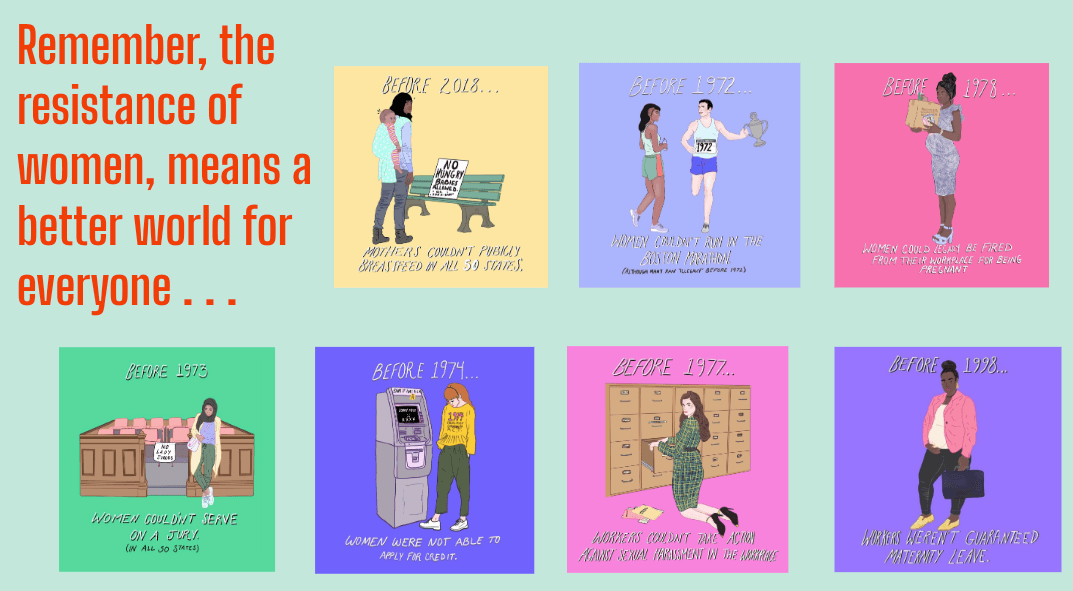
In addition, Women’s History Month was celebrated outside of the classroom at the ECFS All Stars Community Basketball Event. Prior to the game, there was a special reception commemorating the 50th anniversary of Title IX, the federal civil rights law that was enacted as part of the Education Amendments of 1972 that prohibits sex-based discrimination. Current and former ECFS athletes and coaches were invited back to campus to reminisce and celebrate this important milestone that helped girls and women advance in various education spheres, including athletics.
“While looking through yearbooks from the 70s, it’s remarkable to see how many more girls teams emerged,” says Sara Hunt Munoz, Director of Alumni Relations. This shift opened doors for students like Mirembe M. ’24, a track athlete who spoke at the reception about how participating in athletics at ECFS has impacted her in other areas of her education, too.
“The biggest lessons I have learned through running are to trust the people who surround me, to manage my anxiety, to build my confidence, and to strengthen my discipline,” she said. “I can assuage my nerves before an exam by treating it like a big race — I tell myself to trust my knowledge and my countless hours of studying.”
Mirembe’s message about the empowering nature of sports was echoed by Diane Toth, Coach, and Physical Education Teacher for Fieldston Middle and Fieldston Upper, and Janet Pugh ’72, Fieldston Lower Administrator. Pugh also shared her experience as an athlete before Title IX, when equipment, facilities, and training weren’t as widely available for girls’ sports.
For today’s students at ECFS, each athlete has access to the same opportunities, regardless of gender — a fact that isn’t lost on Mirembe, who says, “I am so grateful that Title IX has helped me and millions of other girls in the United States overcome bias and chase after our goals as athletes.”
